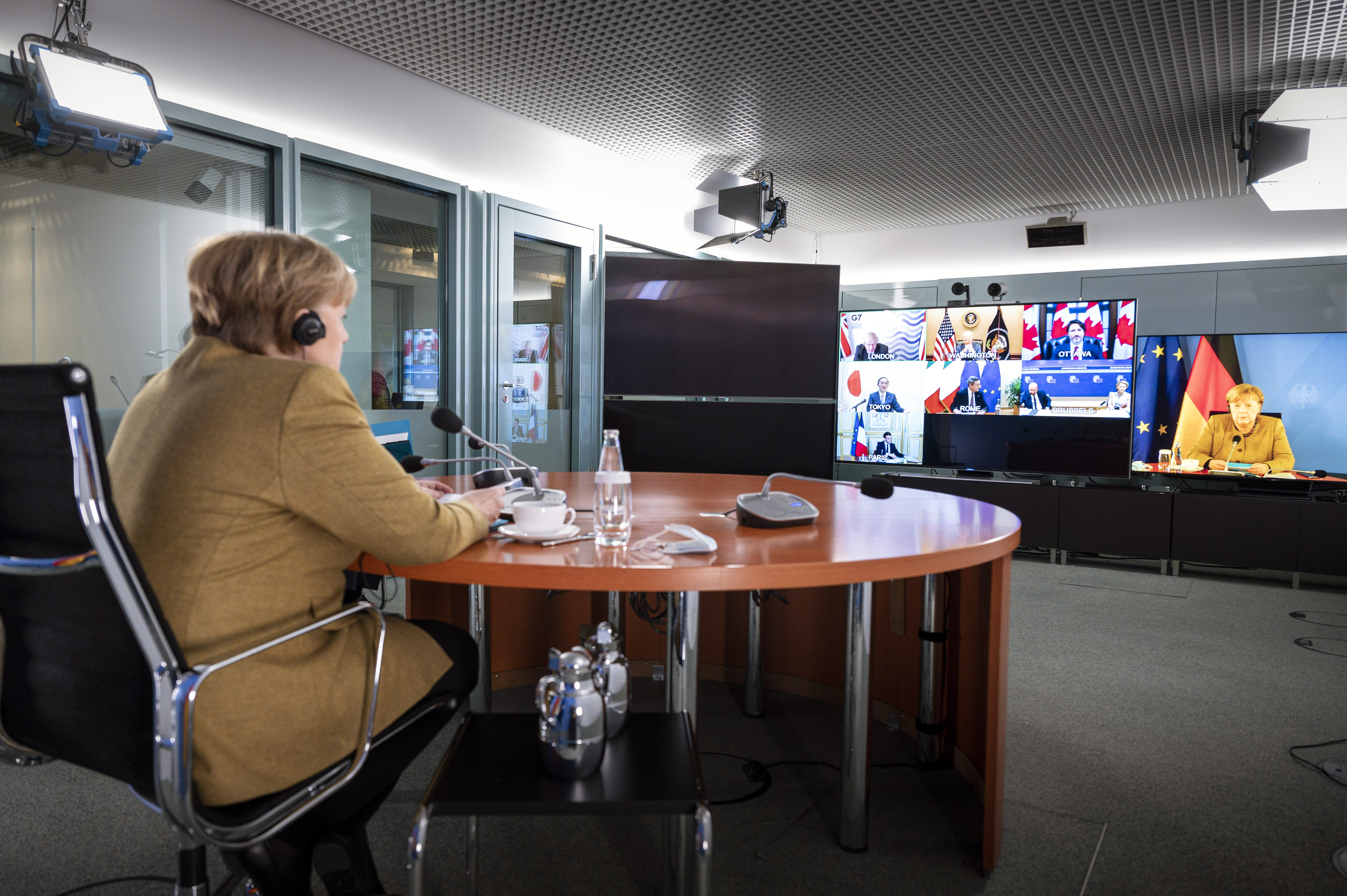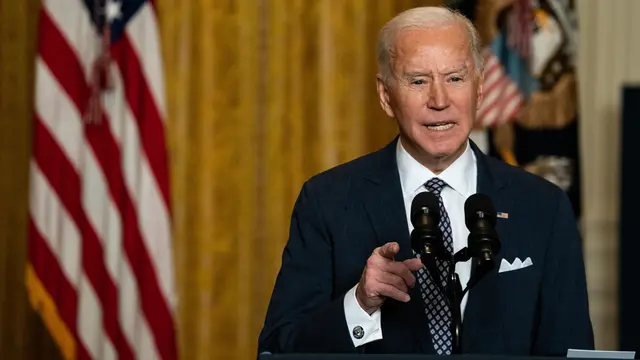
U.S. President Joe Biden addresses the virtual Munich Security Conference in the East Room of the White House in Washington, D.C., U.S., Feb. 19, 2021. /Getty
Editor's note: Bradley Blankenship is a Prague-based American journalist, political analyst and freelance reporter. The article reflects the author's opinions and not necessarily the views of CGTN.
U.S. President Joe Biden finally made his first major foreign appearance on Friday, attending a virtual G7 leaders meeting and later delivering a speech at the Munich Security Conference. Biden's stance on foreign policy was crystal clear, telling the conference, "America is back, the transatlantic alliance is back, and we are not looking backward. We are looking forward together."
This kind of language – moving forward, not looking backward –has been a centerpiece for the Democratic Party's foreign policy since the administration of former President Barack Obama, who Biden served under as vice president. It's clear why many American administrations have taken a "shoot first, ask questions later" approach to international affairs that leaves their successors in difficult positions.
For example, one of Obama's foreign policy victories was thawing relations between the U.S. and Cuba. The leading negotiator for the affair, former Deputy National Security Advisor for Strategic Communications and Speechwriting Ben Rhodes, had to wrangle with the terrible legacy of decades of U.S.-backed terrorism against the island country.
Rather than try to rectify this, Rhodes, according to his memoir "The World As It Is: Inside the Obama White House," told his counterpart, Alejandro Castro, "President Obama wasn't even born when the Bay of Pigs invasion took place. He sent me here to look forward, and that's what I want to do."
This was an effective strategy because, as Rhodes pointed out, the relative youth of him and Obama made this negotiating strategy work. After all, if neither could even recall these events then the case for moving forward instead of backtracking into the enmities of older generations was solid.
Not only does President Biden not have this luxury, he also has to reckon with the fact that the hands that reached out from Washington under the Obama administration became a fist under the Trump administration. Obama's successor burned the bridges he built and he received the endorsement of 74,216,154 U.S. voters as a result. Who can guarantee any bridges built under Biden wouldn't be burned again after four years?

German Chancellor Angela Merkel attends a virtual meeting of G7 leaders in Berlin, Germany, February 19, 2021. /Getty
Biden's team is aware of the distrust the world might have when pondering this question. He said during the conference without naming Donald Trump, "I know the past few years have strained and tested our transatlantic relationship, but the United States is determined — determined — to re-engage with Europe, to consult with you, to earn back our position of trust and leadership."
In the vein of earning back trust and leadership, one concrete and very consequential thing announced by Biden was his administration's willingness to restart negotiations on Iran's nuclear program alongside the P5+1, meaning the five permanent members of the UN Security Council plus Germany.
This is indeed a positive message for the EU because European leaders have been working with Iranian officials to restore the Joint Comprehensive Plan of Action (JCPOA) after the last American administration all but torched it.
"We must also address Iran's destabilizing activities across the Middle East, and we're going to work in close cooperation with our European and other partners as we proceed," Biden said, though not going into any specifics.
Finally, Biden presented a common enemy in Russia and China to try to rally European countries with the U.S. He called Russia a "bully" and said American allies need to work together to combat alleged destabilization efforts emanating from Moscow, something they have repeatedly denied. He also said they need to do more to compete more aggressively against China on trade and technology.
Very much in the spirit of Trump, Biden painted this effort as a battle between good and evil, "democracy" versus "autocracy" as he put it. Couple this rhetoric with the fact that, for just one example, the Biden administration is still not ruling out the possibility that COVID-19 originated in a Chinese lab – despite the fact that the WHO sees it as highly unlikely – and it becomes hard to even differentiate between Trump and Biden.
Friendly competition can be healthy and create innovation – but this is not friendly. This is highly inflammatory language that represents no forward direction in advancing American leadership or pushing an actual democratic, pluralistic world order. It is very much the opposite.
(If you want to contribute and have specific expertise, please contact us at [email protected].)
 简体中文
简体中文

